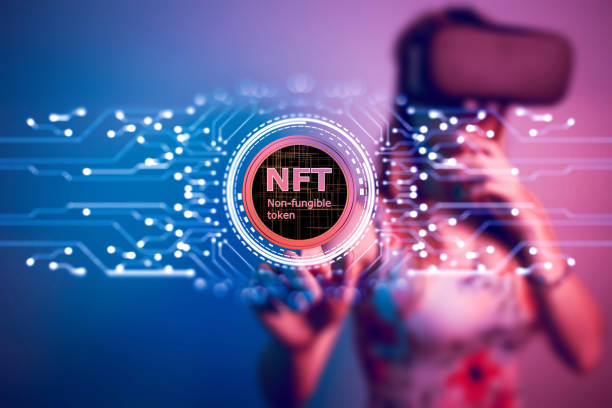In recent years, Non-Fungible Tokens (NFTs) have taken the digital world by storm, revolutionizing the way we perceive and trade digital assets. NFTs offer a unique way to tokenize and authenticate digital content, including artwork, music, videos, and even virtual real estate. As this exciting technology gains traction, it is essential to understand the legal implications surrounding NFTs, particularly in the realm of intellectual property (IP) law. In this blog post, we will explore the intersection of NFTs and IP law and shed light on the legal considerations that arise in this emerging field.
Understanding NFTs: A Brief Overview
To comprehend the legal implications, it’s important to grasp the basics of NFTs. Non-Fungible Tokens represent ownership or proof of authenticity of a specific digital asset using blockchain technology. Unlike cryptocurrencies, NFTs are unique and indivisible, making them ideal for representing one-of-a-kind items in the digital realm. Each NFT contains metadata that verifies its origin, ownership, and transaction history, providing a transparent and immutable record.
Copyright Considerations for NFTs
NFTs present new challenges and opportunities within copyright law. When an NFT represents a copyrighted work, questions arise regarding ownership, licensing, and fair use. Here are some key points to consider:
- Ownership of NFTs: Acquiring an NFT does not automatically confer ownership of the underlying copyright. Artists and creators should explicitly define the rights associated with the NFT and specify whether the copyright is included in the transaction.
- Licensing and Usage: Artists and content creators can leverage NFTs to establish licensing terms and control the use of their work. Smart contracts embedded within NFTs can outline usage rights, royalties, and limitations, granting creators more control over their intellectual property.
- Fair Use and Transformative Works: NFTs featuring copyrighted material may raise questions about fair use and transformative works. Artists and collectors should be aware of potential copyright infringement issues and consider obtaining appropriate permissions or licenses when creating or trading NFTs based on existing copyrighted works.
Trademark Issues and NFTs
Trademarks play a vital role in brand protection, and the advent of NFTs introduces new challenges in this area. Considerations include:
- Brand Association: NFTs associated with well-known brands or trademarks can potentially create confusion or dilute the distinctiveness of the mark. Brand owners should be vigilant in monitoring the use of their trademarks within the NFT space and take appropriate actions to protect their rights.
- Counterfeit NFTs: As NFTs gain popularity, counterfeit or unauthorized NFTs representing famous brands or trademarks may emerge. Brand owners should remain vigilant and take necessary measures, such as monitoring NFT marketplaces, issuing takedown notices, or pursuing legal action against infringers.
Publicity Rights and NFTs
Publicity rights, also known as personality rights or rights of publicity, grant individuals control over the commercial use of their name, likeness, or identity. NFTs featuring celebrity images or endorsements raise interesting legal considerations, including:
- Consent and Authorization: Artists and creators must obtain appropriate consent and authorization from individuals before using their likeness or personal attributes in NFTs. Failure to do so may lead to legal disputes and potential infringement of publicity rights.
- Value and Attribution: NFTs associated with celebrities or well-known personalities may have significant value. Clear attribution and accurate representation of endorsements or affiliations are crucial to avoid misleading consumers and potential legal repercussions.
As NFTs continue to revolutionize the digital landscape, understanding the legal implications, particularly within intellectual property law, is paramount. Artists, collectors, and stakeholders involved in the creation and trade of NFTs should consider copyright, trademark, and publicity rights to ensure compliance and protect their interests. Staying informed about evolving laws and seeking legal counsel when needed will help navigate the exciting but complex world of NFTs, promoting innovation while upholding the principles of intellectual property rights.

